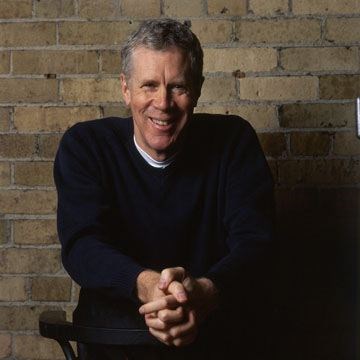If someone were to create a variety show on the day Prince George was born as a municipality, if it was an event at a cafe that offered a little music and a little story, a little humour and a little reverie, it might look something like this: the house band might strike up a chorus of It's A Long Way to Tipperary or Keep The Home Fires Burning and have a reading from T.S. Eliot's latest poetry, or the surprising new voice of a writer named Virginia Woolf.
Perhaps the salon-style event might discuss the books of fading political characters like Theodore Roosevelt or the musings of upstart political figures like Vladimir Lenin and Winston Churchill.
Someone might play an Irving Berlin tune burning up the sheet music charts of the day, or talk about the interracial theatre success of the opera Treemonisha by Scott Joplin.
But that being rural Canada, and that being 1915, there might have instead been a slightly different tone. There might have been a scene of song and story that was all ours - all Canadian, that is - even though the nation itself was not yet a full generation old. Canada was adolescent, but it was active in its arts.
Emily Pauline Johnson was already an international poetry star who died young just the year before.
An feminist revolutionary named Nellie McClung had just issued an official demand on government to give women the vote, while thousands of young Canadian soldiers were on ships churning to Europe to engage a catastrophic enemy.
But more happily, Vancouver's pro hockey team, the Millionaires, won the Stanley Cup that year by defeating the Ottawa Senators.
The second-highest bestseller in the world was a sequel novel, Anne Of The Island, the third book by P.E.I.'s beloved author Lucy Maud Montgomery.
Canadian humourist and political scientist Stephen Leacock had two books in the international Top 200. They were Moonbeams From The Larger Lunacy and The Dawn of Canadian History: A Chronicle. We were already looking at ourselves, and already laughing about it.
Recorded music was becoming a big thing. There were popularity charts for it, instead of just for sheet music. A couple of Canuck compositions hit the big time, that year. One was the iconic anti-war song I Didn't Raise My Boy to Be a Soldier by Ontario's Alfred Bryan while Canada's Shelton Brooks sold thousands of copies of his tune You Can't Mend A Broken Heart.
The phonograph was warming up to a new form of music known then as "jass" before it added the two zeds (not zees) and songs like Jelly Roll Blues and artists like W.C. Handy were forming a new and purely American style of music, but the speakers were also playing a song called Canadian Capers that kept our nation in the world's view.
And the world couldn't take its eyes off another Canadian, a film star named Mary Pickford, known globally as one of the most powerful females in the fields of business and culture.
These were giant times in world events, with the First World War just underway and popular media culture being born as its twin.
Prince George was playing its small part in these feelings and dealings. During the previous year, the last spike was pounded into the Grand Trunk Pacific Railroad, linking Prince George to the Pacific Coast to the west and the girth of Canada to the east.
The Pacific Great Eastern Railway was also hammering its way north from Vancouver, reaching the southern Cariboo at about the same time (it wouldn't get to Prince George until 1952, but that was not a fact that could dampen enthusiasm at the time). The indigenous Lheidli people, who spoke the Dakelh language, still outnumbered all other cultures living in the area, and the main business of old, the fur trade, was giving way to the forest industry as the main human interest in the area.
Radio was not yet 10 years old, in 1915, since Reginald Fessenden made the world's first broadcast on Christmas night in 1906. That first communique was itself a variety show, with a violin solo of O Holy Night, a phonograph recording of a Handel piece, and a Bible reading encouraging peace.
So, on the occasion of Prince George's 100th anniversary, it should come as perfectly appropriate that a radio variety show broadcast be one of the main ways the city is given its centennial notice by the nation of Canada. It should be considered an honour that the preeminent radio variety show host in the nation - Stuart McLean - be the one to do it.
And so he did, along with local singer-songwriter Raghu Lokanathan, Cariboo folk duo Pharis and Jason Romero, and with an autobiographical short story by Prince George resident Vince Ramcharran. It was recorded in front of a large live audience at CN Centre back on March 8, but this weekend the whole world gets to hear the result on the next set of broadcasts of The Vinyl Cafe.
Canada and the globe can tune into Prince George, through the eyes and past the vocal tones of Stuart McLean, during three airings of the show. You could hear it first on Saturday at 9:05 a.m. on CBC Radio-2 but if you miss that, it'll also be rebroadcast Sunday at 12:05 p.m. on CBC Radio-1, Tuesday at 11:05 p.m. on CBC Radio-1, and it will be available forever online via the Vinyl Cafe's podcast.



